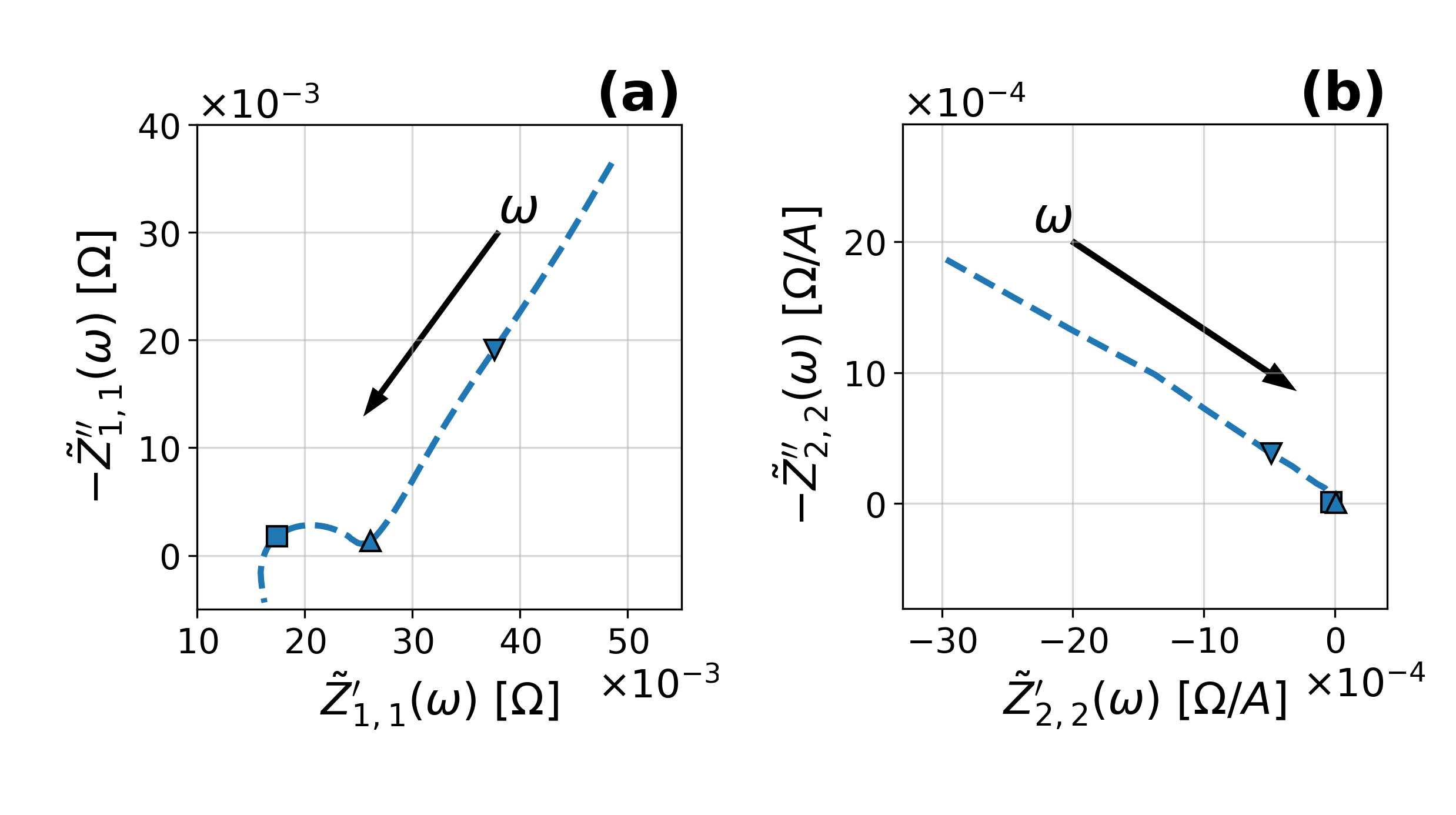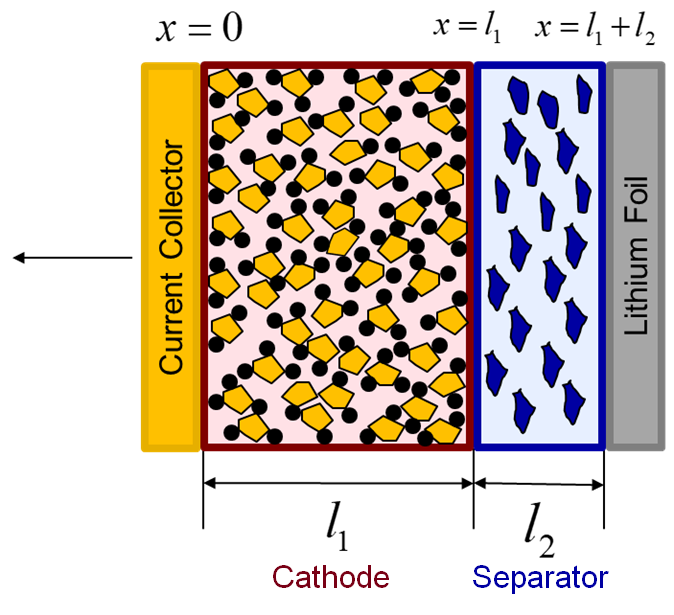Current Research Topics
Our group uses electrochemical engineering fundamentals to advance energy conversion and storage.
BATTERY DIAGNOSTICS
 Electrochemical impedance spectroscopy (EIS) is a commonly used tool for noninvasively probing physicochemical and degradative processes in batteries and other electrochemical systems. Using a commercial EIS instrument, we have developed the theory and experimental approach for extracting and interpreting the information-rich second-harmonic nonlinear EIS (NLEIS) response. The combination of physics-based models and second harmonic NLEIS signals illuminates new physics in batteries, most prominently, how charge transfer symmetry depends on battery states-of-charge and degradation.
Electrochemical impedance spectroscopy (EIS) is a commonly used tool for noninvasively probing physicochemical and degradative processes in batteries and other electrochemical systems. Using a commercial EIS instrument, we have developed the theory and experimental approach for extracting and interpreting the information-rich second-harmonic nonlinear EIS (NLEIS) response. The combination of physics-based models and second harmonic NLEIS signals illuminates new physics in batteries, most prominently, how charge transfer symmetry depends on battery states-of-charge and degradation.
SYSTEMS-LEVEL MODELING

Large-scale vehicle fleets, such as mass transit, freight, and rideshare services are seeking to lower carbon emissions through vehicle electrification. Systems-level models that incorporate physics-based and data-driven battery models, along with vehicle dynamics equations have the potential to improve maintenance scheduling and route planning for electrified vehicle fleets.
PHYSICS-BASED MODEL ALIGNMENT WITH EXPERIMENTS

As the energy requirements for electric vehicles and aircraft increase, lithium ion batteries will no longer be able to deliver the necessary energy density. Lithium sulfur and lithium metal batteries are promising next-generation battery chemistries that could deliver 2-3 times the energy density of lithium ion. The models allow for a better understanding of the internal states of the battery under different operating conditions, which can inform design or usage decisions.
Past Projects
MANUFACTURING
- Genetically engineered materials
- Protein-aided nanomanufacturing
- Electrochemical printing
ENERGY
- Protein-aided nanomanufacturing
- Water and PEM fuel cells
- Nonlinear impedance of SOFC
- Bio-energy IGERT
SECURITY
- Optimized cesium sensing materials
- Radiation decontamination
HEALTH
- Genetically engineered materials
- Hydrodynamic and electrochemical manipulation of cells
